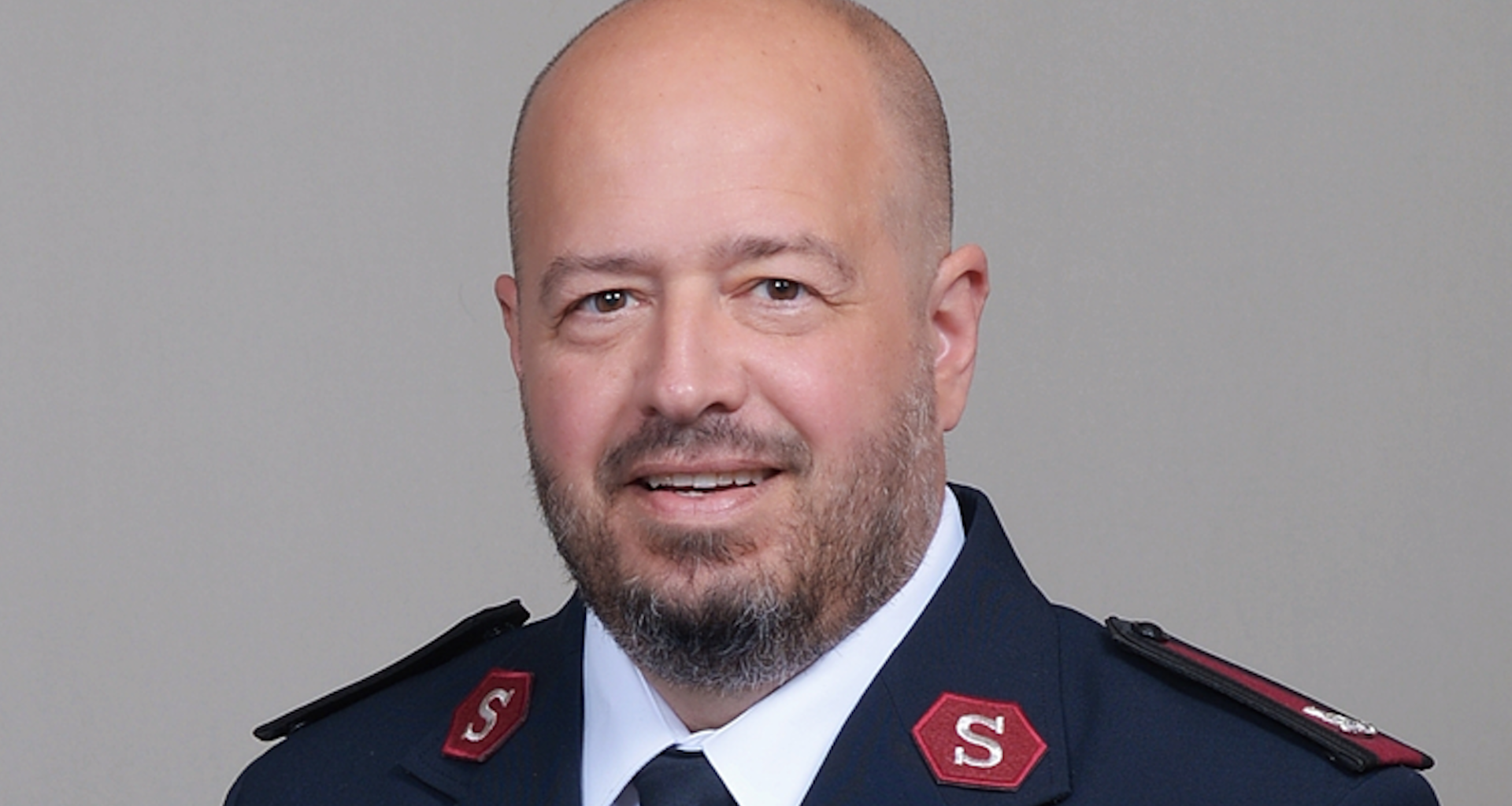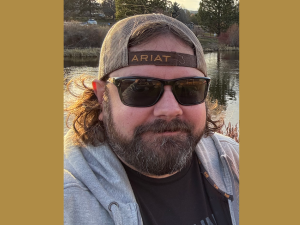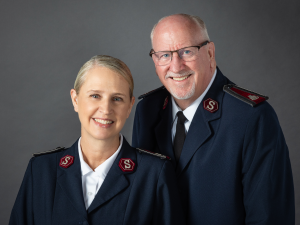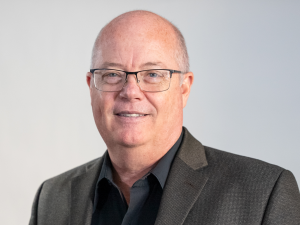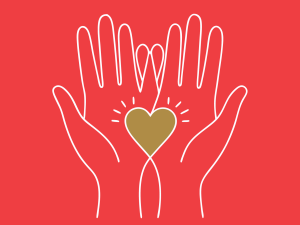It’s said when an individual is rehabilitated from their addiction, some 50 people around them are positively affected.
For The Salvation Army Adult Rehabilitation Center program across the western U.S., that equates to some 50,000 people a year.
And more than only addressing issues of substance abuse, these centers offer life rehabilitation for those who need it, according to Major Mark Nelson, ARC Commander in the West.
It’s a story that goes back to William Booth telling his son in Victorian England to “do something” to help the men living under the bridge.
Now, for more than 100 years, The Salvation Army has operated rehabilitation facilities across the U.S. that provide help and hope to those with a variety of problems, including issues relating to substance abuse. These residential programs offer spiritual, emotional and social assistance in an environment designed to help participants live healthy, fulfilling lives.
But it doesn’t stop with them. That ripple effect is helping restore families.
Show highlights include:
- What the state of recovery is today in America.
- What The Salvation Army Adult Rehabilitation Center program entails.
- An ARC story of transformation that sticks out to Major Mark Nelson.
- Why The Salvation Army is committed to rehabilitation.
- Why Major Nelson loves this ministry.
- How his proximity to the ministry has affected his faith.
- What “Second Chances” events are and how The Salvation Army offers a second chance.
- What people don’t know about the ARC.
- How Salvation Army thrift stores are connected to the ARC.
- Major Nelson’s hope for Salvation Army ministry in the next five years.
- What is the best way for you to support the efforts of The Salvation Army ARC.
Listen and subscribe to the Do Gooders Podcast now. Below is a transcript of the episode, edited for readability. For more information on the people and ideas in the episode, see the links at the bottom of this post.
* * *
Christin Thieme: Major Mark Nelson, welcome to The Do Gooders Podcast. Thank you so much for joining us today on the show.
Major Mark Nelson: Thank you. Glad to be here.
Christin Thieme: We are looking at various avenues, you could say, of Salvation Army ministry and work across the United States. And with you, I would love to dig into more about what The Salvation Army does in the arena of addictions recovery, so I wonder if we can just start there and lay the foundation. What is the state of recovery in America today?
Major Mark Nelson: It’s a pretty complicated picture. I think there’s a lot of drug abuse lately, and it’s more dangerous than ever. Lots of people are dying from overdoses, so it’s something that really needs to be addressed. The good news is there’s lots of recovery available. It’s available to more and more people. There’s tons of different choices about what kind of recovery you want to go to, ranging from abstinence-based programs like the ARC, to harm reduction, and even medically assisted treatment, inpatient, outpatient, more than ever before, more choices.
A political thing is that there are many non-recovery options for people who need it out there as well, COVID hotels, permanent supportive housing, tiny homes for people who are labeled homeless, but their primary issue is substance abuse disorder or that and mental health disorders, so that homelessness is a result of those problems, but not the primary issue. And then they’re offered a homelessness solution, which is not as effective as it should be, to help them actually address their problems. And the problem is that a lot of these people end up dying in their addiction. So I think there’s good news and bad news. With all the recovery resources that are available today, I think recovery should be the first thing that’s offered to people who need it, before a less helpful or effective option is offered.
Christin Thieme: And many will know The Salvation Army is invested in helping people find recovery across the United States and has been for many, many years. You mentioned the ARC. Can you tell us a little bit more about, for those who aren’t familiar, what exactly is an ARC, an Adult Rehabilitation Center, and what does that program entail?
Major Mark Nelson: It’s a six-month residential program. It’s offered to people who are experiencing major life problems, including addiction, not just addiction, but major life problems. The ARC program is spiritual in nature and centered around what we call work therapy. I don’t like to call the ARCs a rehab because we’re much more than a drug rehab. It’s a really holistic program. The ARCs are really a life rehabilitation center. And for the people that come to us, really life has gone off the rails, and we help them find it again, to really live the life potential that God has planned for them.
It’s also a spiritual program because we believe the ultimate power to overcome those major life problems and find the true purpose that God has in store for them, it requires God’s transformational power and presence in their lives. So we preach the gospel. We teach our men and women about the Bible. We pray and sing and worship and give them an opportunity to know God in hopes that they know God and then trust him and that he begins to work in them for that transformation.
I want to talk a little bit about work therapy. We believe that we’re created by a creative God to be like him. That means that we have to create, and if we’re not creating, we’re not satisfied with life. So work is a means of finding purpose and meaning for each person. So in our program, a simple work assignment is provided as an opportunity for our folks to find that meaning and purpose, even on a small scale, and eventually they find themselves again. And I have to admit this is not always welcome at first, especially when they first come in, but in most of the graduation speeches I’ve witnessed, most of the people credit work therapy is a major key to their transformation.
And then finally, I’ll say many of our people have addiction issues, but there are all kinds of issues. There are a growing number of people on the spectrum. There are people that just can’t quite make it in life. They can’t adhere to cultural norms. So we use 12-step principles as a helpful framework for everybody, whether it’s addictions or not, because it’s a helpful framework, and it provides a support network to address all those kinds of issues. So everybody in our program participates in Big Book studies and meetings inside and outside of the center.
Christin Thieme: And you are the commander of the Adult Rehabilitation Center Command for The Salvation Army across the West, so you really get a picture of these stories that are happening all across the region, I guess you could say, and so much of the work that’s being done. And I know that you’ve been a Salvation Army officer for many years, or a pastor, so I’m wondering from your own perspective, from what you’ve seen and what you’ve been involved in, is there a story of that rehabilitation transformation that you’ve seen that sticks out to you? Can you give us a little bit of that human element?
Major Mark Nelson: For sure. And I’ll not just say it from the ommander’s perspective but I still am in contact with folks that came through the program when I was in those positions. So I can’t just tell one story, and I’ll talk about a story from when I was an ARC administrator. So Tracy was a nineteen-year-old homeless man in Pasadena. He was a high school dropout. He came to the ARC in Pasadena, completed the program, but while he was there, he took the opportunity to enroll in the GED program. Got his GED, he stayed connected to the ARC, went to college and then law school. And now he’s a really successful attorney in Los Angeles, and he still is connected. He sponsors men at the Pasadena ARC and volunteers teaching Big Book AA principles to people every year.
I also think of Steve and Eric. They are two veterans who lost everything to crack cocaine addiction. They were living in boxes under a freeway overpass before they came to the Santa Monica ARC, and now both are tradesmen with their own businesses. One’s a carpenter, one’s a plumber. I speak to both of them every now and then still, and both are doing well. One of them came over and helped me hang my TV a few weeks ago, so they’re great.
And then two more, Eli and Atticus. These are two men who were wildly successful in life. One of them was earning about a million dollars a month when he came into the ARC to address this issue. Both became trapped in addiction, so life was unmanageable. Both sought treatment at two different ARCs. Both work here at ARC command for me, doing very high level work, and they both make way less than they would. One of them said that he hasn’t made this much money since he was 18 years old. So they’re two of the smartest guys I know, and they’re committed to working in the ARC because of what the ARC did for them and what it does for others.
Christin Thieme: It has to be incredible to see that transformation really, before you make the work so tangible. If we were to zoom out a little bit, why is this area, specifically this life rehabilitation, why is this an arena that Salvation Army is so committed to?
Major Mark Nelson: Well, I think the ARC… Without bias as being the ARC leader, I think the ARC is the most impactful and transformational program that The Salvation Army offers in the United States. And I believe it’s a living expression of the work that William Booth challenged Bramwell Booth to do. You might remember the story. He pointed at some men living under a bridge, and he said, “Do something.” So Bramwell did, and with great success. We still do that work today because it’s still needed, and it still works.
And as far as being a church or a social services organization, I think that the ARC is a most excellent expression of both purposes. The Church is charged with making disciples, and the ARC does that every single day. There’s a new disciple, at least one, every single day, but usually many. Social work’s purpose is to help people at their point of need, help them with what they need. The ARC does this in spades in a very holistic way for an extended time, and we’re blessed by God for good results.
Another thing I would just say is that it just provides so much impact. I recently read that for each person that finds recovery from addiction, about 50 people around them are affected positively because of that change. So we had 1,000 graduates in 2023. So that means that those 18 centers, just 18 centers in the West, positively affected the lives of 50,000 people last year. So I think it’s really important and impactful work.
Christin Thieme: How has your proximity to this ministry affected your own faith?
Major Mark Nelson: Well, I get to see miracles every day. We read about miracles in the Bible, but I see God change people where it’s not possible. They’re too far gone. I’d look at them, and I’d say they’d never make it, but he makes it happen over and over again. Those are miracles. And by witnessing that I know he can handle everything, anything that comes our way. So as our men and women surrender their lives to him, he provides for them. And so it’s just a message to me that if he can do that for them, he can do that for me, if I surrender my life, my family, my ministry in his hands, he can provide.
Christin Thieme: That kind of leads into this idea of a second chance. I know the ARC has held many of what it’s called Second Chances events over the past year. What is the idea behind that theme, that second chance, and how is that found with The Salvation Army?
Major Mark Nelson: So Second Chances events is a public event. It’s a PR event where we invite local leaders, politicians, community partners, to come into an ARC, take a tour, and hear a presentation of our graduates’ success stories, their stories of a second chance. So really it’s just an opportunity to let people know about what the ARC does in their community and let them know that this is a place that people can come to find a second chance at life.
Christin Thieme: What’s something that people might not know about the ARC specifically or about rehabilitation more broadly? What’s something that people, you find, are surprised to learn?
Major Mark Nelson: Well, I know people think, especially in the Army, that the ARC has been around for a long time, but it’s one of our oldest ministries, most enduring ministries. You’ll know Captain Joseph McPhee, who started the Christmas kettle, also started the ARC.
Christin Thieme: Oh, I didn’t realize that.
Major Mark Nelson: There you go. He opened the Lifeboat Shelter in San Francisco on Christmas Day, 1892, and he offered shelter and food and a few other things for down-and-outs, what they called them, down-and-outs, who are unemployed men, most of them addicted to alcohol or opium at the time, all unable to live life on life’s terms. So Captain McPhee offered them food and shelter, work, and the Word at the Lifeboat. It was wildly successful and expanded and grew and eventually became the ARC. So the ARC has been serving this population in the Western Territory 24/7, 365 days a year since 1892, so that’s 131 years.
Christin Thieme: You mentioned the kettle. I think it’s safe to say that most people know The Salvation Army by its kettles and its thrift stores, something that we always hear. So how are the thrift stores specifically connected to the ARC?
Major Mark Nelson: So the ARC command operates 88 thrift stores in the Western Territory, and the sales from those stores provide the bulk of the financial support for our 18 ARCs, those programs are offered to people free of charge. They pay nothing to come into our program. So those 88 stores this year will provide about $150 million in revenue to support those programs. In addition to that, the production activities needed to supply the stores also provide a venue for the work therapy that I talked about, for our clients and beneficiaries.
Christin Thieme: As commander of the ARCs in the West, you’ve given us a good picture of what’s going on and the heart behind it. What would you say your hope is for this specific avenue of The Salvation Army’s ministry in the coming year, in the coming five years? What do you hope to see?
Major Mark Nelson: While the ARCs have a huge impact, there’s room for improvement. I’d love to offer more training opportunities and support after the completion of the six-month program. Right now, there’s vocational programs all around to help people, and most of them are free of charge. So we’d love to host people or facilitate participation in those kind of programs so that they can improve their earning potential. We’d like to help them access those kinds of services because we really want our people to find the best possible outcome. And if we can help them to avoid poverty, that really helps them to stay on track and removes one of the things that sometimes leads them back into addiction.
I would also say that our thrift store business and our tactics might’ve failed a little bit in the last decade or so, and at the same time, all kinds of other competition came in and joined this business sector, so we’re working really hard right now to improve our tactics and our standard processes and procedures, and also looking for other opportunities to increase income. We have to do that because everything’s more expensive every year just to do what we’re doing, so our revenue needs to grow to support those current needs and to support the aspirations we have about expanding and improving our program.
Christin Thieme: Yeah, absolutely. And in that vein, what’s the best way for someone who’s listening who is interested in helping in this regard? What’s the best way? Where would you direct someone to get involved in supporting it?
Major Mark Nelson: I could think of three easy ones. If you have stuff to donate, if you have clothing and household goods, give them to us. Don’t go to competition. I know that we’re not the closest place. We’re working on those things. We’re trying to make that better. But if you identify with the mission of the ARC, I would ask you to make the extra effort to donate to us, and in return, you’re part of making transformation and impact possible.
Second way you could help us, if you’re a corps member, if you go to The Salvation Army as your church, men and women, if there’s an ARC nearby, come and visit your corps every Sunday. Talk to them, greet them. They’re great people who need Godly friends, so befriend them, minister to them, invite them to return. I know a lot of corps would love to have more people, and these are people of potential for your corps, so just reach out. They’re great and mostly really interesting people, so reach out.
And then finally, I would say if you know the Bible really well or you know how to teach some really useful social or vocational skill, come talk to us. We’d love to have you volunteer to help our men and women in our centers.
Christin Thieme: Where’s the best way to find and connect with the ARC online?
Major Mark Nelson: SATruck.org is still our main website, and you can find us there.
Christin Thieme: Excellent. Well, Major, thank you so much for sharing and for the work that you’re doing, and hopefully we can continue to grow it, as you said.
Major Mark Nelson: Thank you.
Additional resources:
- See how The Salvation Army supports rehabilitation.
- It’s because of people like you The Salvation Army can serve more than 24 million Americans in need each year. Your gift helps fight for good all year in your community. It’s an effort to build well-being for all of us, so together we rise—and that good starts with you. Give to spread hope with a donation of funds, goods or time today.
- Get inside the Caring Magazine Scripture Study Collection and find a suite of free, downloadable Bible studies to guide you through topics from New Beginnings Through Forgiveness, to Understanding our Imago Dei or Life Hacks From David.
Listen and subscribe to the Do Gooders Podcast now.









